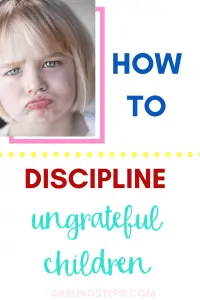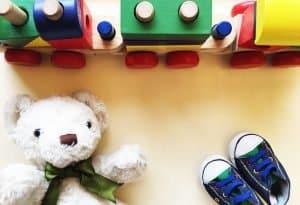5 Behind The Scenes Ways To Discipline Ungrateful Kids
Ways to Discipline Ungrateful Children
Almost every child goes through an ungrateful stage (or stages) during childhood. It’s just a part of life, isn’t it? The good news is that when it comes to disciplining our children, it CAN be done. Better yet, it’s so much easier than you think. Here are some gentle ways to whip your kiddos back into shape! (No pun intended LOL)
Point Out the Ungrateful Attitude
Remember that young children, especially, don’t realize that they’re being ungrateful. You have to point these things out to them. Once your child has been appropriately disciplined, talk about some of the things they can be grateful for. Be specific and yet simple. Explain that not everyone is lucky enough to have these things and that it’s not right to take them for granted. Expand on the subject every now and then, just as a gentle reminder. If you want to pack a punch and make this super impactful, consider implementing “volunteer days” in your home. You (or as a family collectively) can choose a specific day once a month or once a week, however often you choose and decide on where you will volunteer your time and efforts as a family. Some ideas to consider are: an animal shelter, a nursing home, a farm, a local park (cleanup, etc), and more! If you need more ideas, don’t hesitate to write in the comments below or shoot me an email. I LOVE volunteering and there’s such a huge need for it.
Make a Deal
First things first, PLEASE don’t beat yourself up for making a “deal” with your child every once in a while. I know that judgy people out there will read this and roll their eyes. But, it’s all good. That’s okay. It’s important to try all the things and do what works best for you and your family.
So, for example, if your child persists in asking you if they can read a book for thirty minutes after bedtime, tell them that you’re willing to make a compromise. Set a timer for 15 minutes instead. This way, everybody is happy.
Stand Your Ground
In the event, your child won’t do as you say when disciplined, stand your ground. If you think you sound like a “broken record” that’s okay too. Really, it is. Sometimes it’s the only thing that works. There’s nothing wrong with being sympathetic and listening to what your child has to say. However, if the discussion comes to the point of standstill, don’t be afraid to end it and walk away firmly. You gotta do what you gotta do. Just saying.
It’s essential to treat your child with respect, even during your most stressful moments. Exhibiting stress allows him to take advantage of the situation and makes things worse, which is exactly the opposite of what we are trying to accomplish here.
Allow Privileges When Earned
At least for the majority of the time, it’s best only to allow privileges when earned. This way, children learn that they need to follow the rules to participate in activities and get rewarded with some of the things they ask for. Always reinforce positive behavior, as well. This is probably my most important and best piece of advice here. This makes children feel good and reminds them that they’re on the right track.
Whatever behavior you enforce and give your attention to, is the behavior you will reinforce. Always focus on the positive.
Giving children toys or other gifts to get them to act less ungratefully just doesn’t work. In fact, it causes more serious problems.
Focus on Helping Others
When you focus more on helping others, you’ll probably find that your child’s self-centered attitude will improve. Of course, this won’t happen overnight. Patience is key here. But, the more helpful children become, the more their outlook on gratefulness changes. As an added benefit, helping others fosters kindness and empathy, as well. Both of these attributes will follow your child to adulthood, and there’s certainly nothing wrong with that.
Child development experts tell us that ungrateful children typically don’t grow up to be exceedingly selfish, or greedy. It’s something that most kids grow out of by the age of 8 or 9. So, there’s no need to panic. The best thing to do is to stay as calm as possible when these situations arise. Be firm, and the crisis will pass. Remember, it’s all in a day’s work of a parent.










